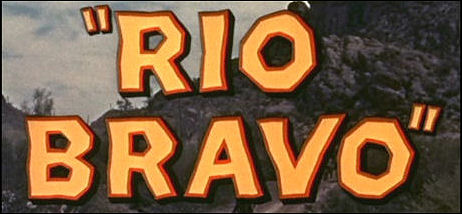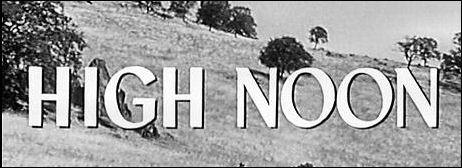Can you imagine being on your death bed, as legendary critic and essayist Robin Wood was recently, and being suddenly seized by an urge to name your top all-time films, and as a friend sits down by the bed with a pad and pen, you sit up slightly and say, for openers, “Top of the list…my all-time favorite…Rio Bravo.”

What is that? You’re about to leave the earth and meet the monolith and the greatest film you can think of is Rio Bravo? A zero-story-tension hangin’ movie that constantly subjects viewers to screechy-voiced Walter Brennan, and which features the very soft-spoken, adolescent-voiced Ricky Nelson singing a duet with Dean Martin?
If Wood is listening from his side of the cosmic fence, let me try explaining this one more time. (I explained it in full on 7.27.07.) Rio Bravo, which I’m moderately okay with, doesn’t hold a candle to High Noon, which is more or less the same film — about a lawman facing up to bad guys who will kill him if he doesn’t arrest or kill them first.
The reason is that High Noon is about facing very tough odds alone, and how you can’t finally trust anyone but yourself because most of your “friends” and neighbors will equivocate or desert you when the going gets tough. That’s reality, while Rio Bravo is a nice dream about standing up to evil with your flawed but loyal homies and nourishing their souls in the bargain — about doing what you can to help them become better men.
High Noon doesn’t need help. It’s about solitude, values…four o’clock in the morning courage. Whereas the action in Rio Bravo is basically about the homies pitching in to help an alcoholic (Dean Martin) get straight and reclaim his self-respect. And about Chance (John Wayne) working up the courage to tell Feathers (Angie Dickinson) that he loves and wants her.

We’d all like to have loyal supportive friends by our side, but honestly, which represents the more realistic view of human nature? The more admirable?
Wood chose Rio Bravo, I suspect, because he was facing the void and he wanted warmth in his heart — he wanted to feel closer to others and selected a film that has always made him feel this. He chose a community solidarity film over a solitary strength film.












